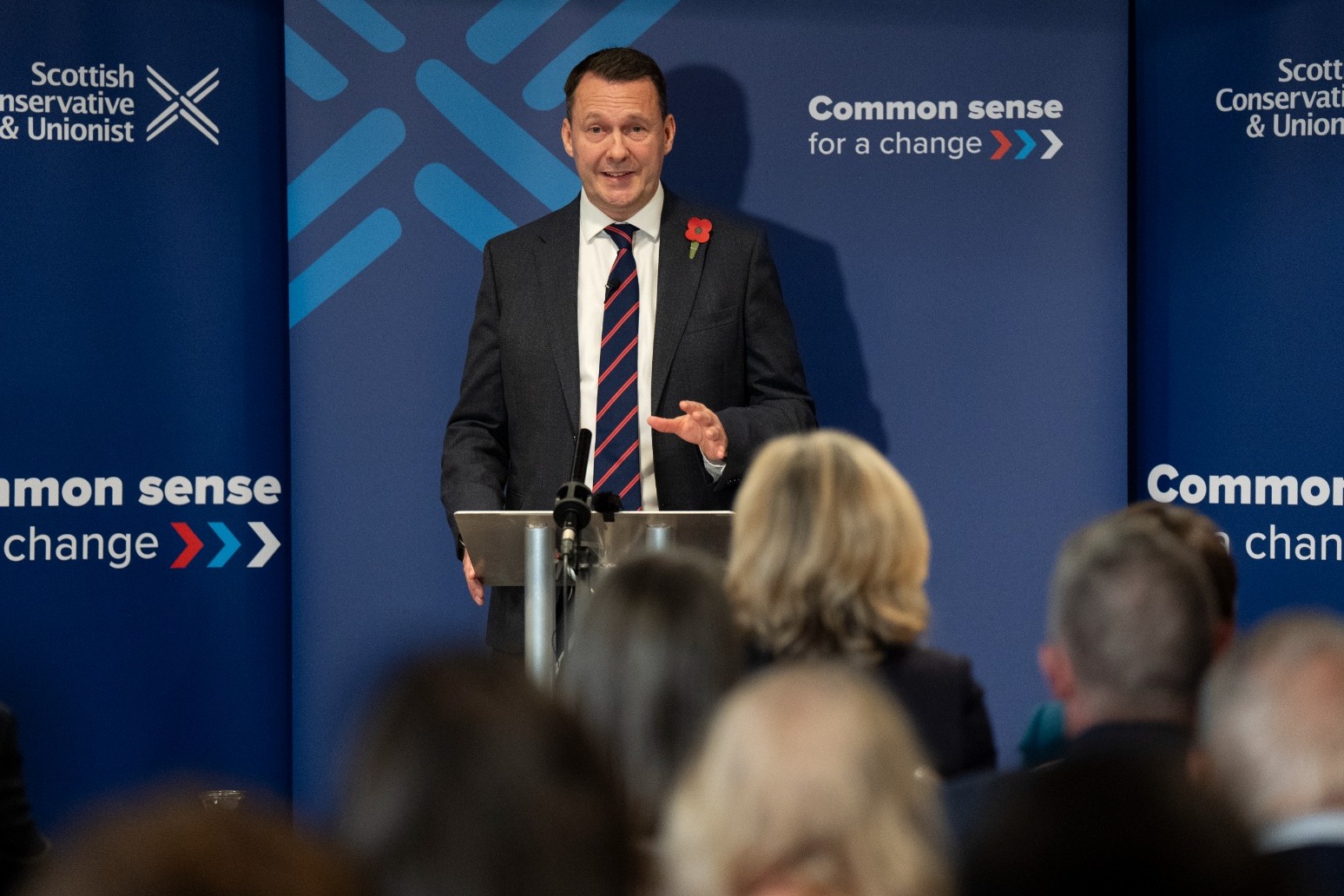
Too early to talk about redundancies if state shrinks, says Findlay
It is too early to talk about redundancies in the public sector, the Scottish Tory leader has said, despite his calls to reduce the size of the state.
In his first major set piece speech since becoming leader, which he denied was a signal of a populist shift, Russell Findlay called on the Scottish Government to cut taxes – including scrapping the 21p rate – and merge some public bodies, and suggested major overhauls of initiatives including the baby box and prescription fees. The former journalist took over the role from Douglas Ross last month and has called for a “conversation” on efficiencies which could be made in Government ahead of the 2026 election, pitching his party as the representatives of the political middle in Scotland. Speaking to party members in Edinburgh on Monday, Mr Findlay said Scotland had been governed by “different types of socialism” in the quarter-of-a-century since devolution, as he hit out at a “political class at Holyrood who just don’t get it”. “Going forward, my party will not only make the case for tax cuts, but for a smaller state that better serves the public,” he said. “It’s a markedly different approach to the left-wing consensus in the Scottish Parliament that favours a big-state approach, expanding both its size and reach into our lives.” The reduction of the state, he said, would not have an impact on public services, but would be achieved through efficiencies. “I don’t want to cut public services, I want to cut the cost of delivering services,” he said. “The only solution Holyrood ever seems to come up with is to put more money in, as if that will fix the problem on its own – well, it hasn’t, and it won’t. “The left-wing parties in the Scottish Parliament spend all their time on inputs, never on outcomes. “Proper funding of public services is crucial, but it’s only part of the solution – public services must become more effective by being more efficient.” Part of that work, he said, could include scrapping or merging some of Scotland’s 131 public bodies, including a suggestion that the Scottish Environmental Protection Agency (Sepa) and NatureScot could be combined and the Scottish Land Commission could be shuttered. But asked by the PA news agency if this would mean redundancies in the public sector, Mr Findlay said there was “no talk” of job losses. “I think you are getting a bit ahead of yourself, what we’re saying is that this is a starting point of a conversation that we need to have going into the 2026 election,” he said. “We need to show the people of Scotland that we are on their side. “They work hard, they see public services getting worse and worse and their taxes going up year-on-year.” The public sector currently operates a policy of no compulsory redundancies, with a previous attempt to shrink the size of the civil service by Deputy First Minister Kate Forbes when she was finance secretary relying on voluntary redundancies and vacancy management. During his speech, Mr Findlay raised the potential of changes to or cancellation of Government-backed initiatives such as the baby box and free prescription fees – pointing to occasions where patients have been prescribed for free a relatively cheap medication such as paracetamol. “I think all of these things are needing to be looked at and we should be focused entirely on how best to deliver for hard-working Scots,” he said. Pushed on how a system of paying for medication would work in his eyes, Mr Findlay appeared to suggest means-testing or a cost floor, saying he would be “perfectly happy” paying for prescriptions and he believed most people earning the equivalent salary would feel the same. With the Chancellor’s Budget due on Wednesday and the Scottish Government’s tax and spending plans to be outlined in early December, Mr Findlay made a plea to the Scottish Government to cut taxes, including by removing entirely the 21p rate. “The SNP will try to claim that this unfair mess of a tax system is progressive,” he said. “But it’s not progress to pick the pockets of Scotland’s teachers, nurses and police officers – leaving them worse off than they would be elsewhere in the UK. “We need fairness and justice for Scotland’s taxpayers.”
Published: by Radio NewsHub